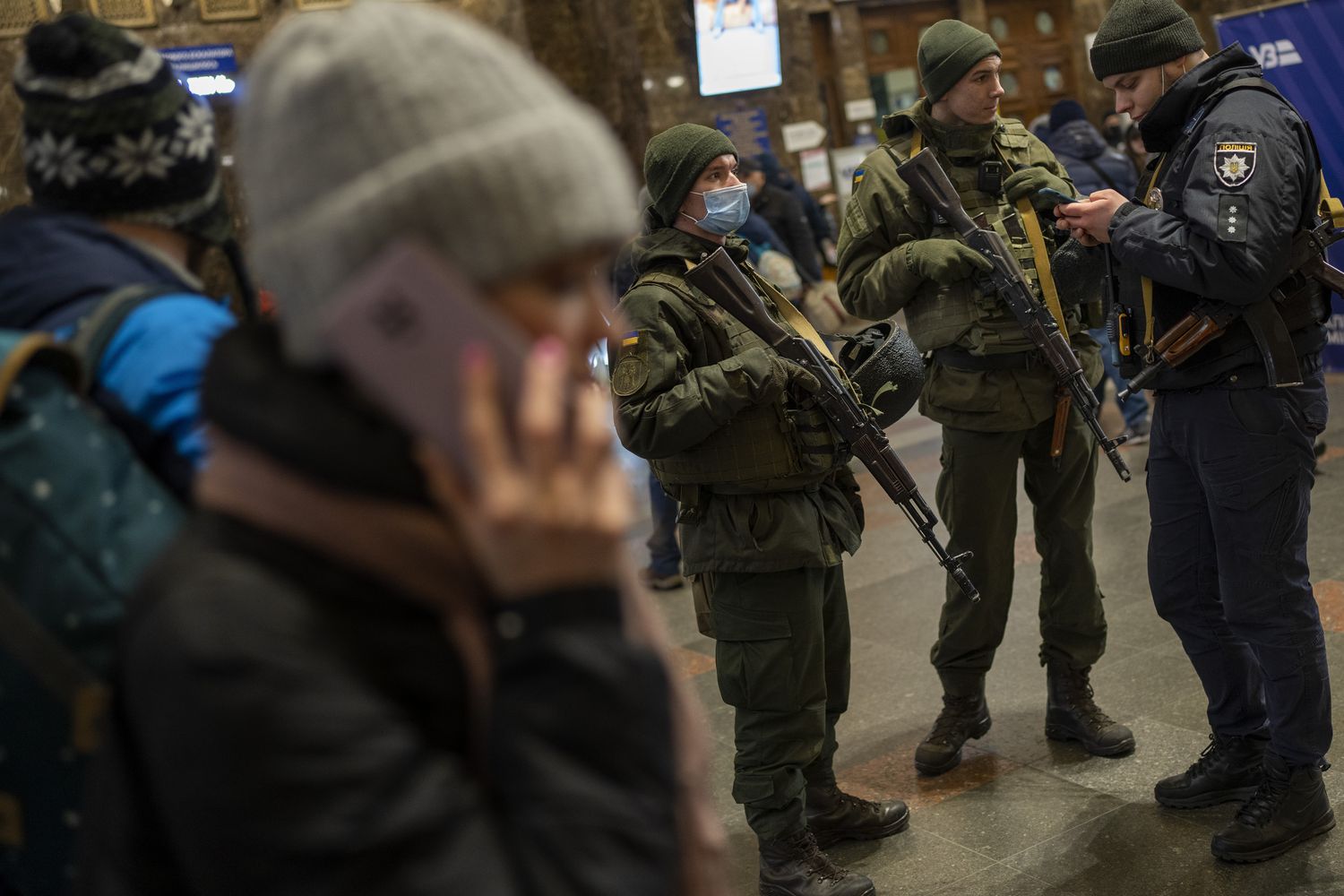
Business leaders in the Canadian-Ukrainian community say they are extremely concerned for the safety of friends and employees in Ukraine after Russia invaded the country Thursday.
Zenon Potichny, president of the Canada-Ukraine Chamber of Commerce, which represents more than 200 companies that do business in the two countries, said the situation on the ground is very serious.
He said he hopes all of Canada stands with the people of Ukraine, especially as more than a million Canadians are of Ukrainian descent.
Mr. Potichny is the president of Zhoda Petroleum, a company invested in two oil projects in Ukraine. The company lost control of one of those projects, an offshore drilling operation in the Black Sea, after Russia annexed the Crimea Peninsula in 2014. He said his company is still pursuing ownership of the project through international courts.
Production at the other, an oil field in Lelyaki in central Ukraine, was shut down Thursday because of the dangers of rocket attacks or tanks rolling through the area, he said.
The company also has a dozen employees in Kyiv, who are bunkering down at their homes.
“We did ask if, perhaps, we can assist them,” Mr. Potichny said. “Perhaps we can help them, move them at least to Western Ukraine or that area, but at this point they actually decided to stay with their families in Kyiv.”
He said Western countries should cast a wide net on sanctions to punish hundreds of Russian businessmen close to President Vladimir Putin and isolate Russia from the Society for Worldwide Interbank Financial Telecommunication (SWIFT) system.
Borys Wrzesnewskyj, a former Liberal MP and the owner of Future Bakery, a chain of bakeries in Toronto, said he is anxious about the humanitarian disaster unfolding. He said the large size and well-organized nature of Canada’s Ukrainian community means that this country can safely take in a large number of refugees, if necessary.
“Our ability to absorb and to bring Ukrainian refugees into our communities, into our homes, we have a capacity to do this on a very large scale,” he said.
As well, he said he is concerned about the living conditions and food supply in other countries that rely on Ukraine’s agricultural experts. He pointed to Lebanon, which is going through its own humanitarian disaster and relies on Ukrainian food for nearly half of its population’s caloric intake. Yemen and Libya are two other countries that rely heavily on Ukrainian grain exports, and a shortage of those products could cause dangerous spikes in food prices.
As a prominent member of Toronto’s Ukrainian community, Mr. Wrzesnewskyj has experienced his own share of aggression. One location of the bakery, which was founded by his grandparents, was vandalized with pro-Russian graffiti earlier this month.
“It was more than an attempt at vandalism,” Mr. Wrzesnewskyj said. “It was an attempt at intimidation. … The messaging that was spray-painted was hateful and clear in what it was saying.”
However, he said he did not believe the attack to be reflective of the Russian-Canadian community as a whole, only of some individuals who had been influenced by the propaganda of Mr. Putin’s government.
Mr. Wrzesnewskyj also said he was hopeful that Western countries would place a full economic embargo on Russia and make sure that Mr. Putin could not channel funds through other, third-party countries. He also urged the Canadian government to cancel the domestic broadcasting licence of RT, a Russian state-controlled television network.
As Ukrainian-Canadian organizations begin to organize fundraisers, some members of the community are rushing to send money directly to their loved ones.
Taras Pidzamecky, chief executive officer of the Ukrainian Credit Union Ltd., a Canadian credit union that serves members of the Ukrainian community, said he has seen a sudden surge in members wanting to wire money to family abroad.
He said the credit union is trying to quickly check on the status of the banking system in Ukraine, but that it is still not clear what is functioning.
“We just want to be careful, for example, that somebody doesn’t try to send some money and then it gets stuck somewhere because there’s nowhere to land or there’s been a disruption at the other end,” he said.
Your time is valuable. Have the Top Business Headlines newsletter conveniently delivered to your inbox in the morning or evening. Sign up today.




